After spending a lot of money on your home, the prospect of receiving some of it back while still living in it after retirement seems like a fair deal. The concept behind a reverse mortgage has some pros and cons. Homeowners who wish to age in place and have a large amount of equity in their home may find this option particularly appealing.
You should assess the advantages and disadvantages of reverse mortgages, including the stringent qualifying standards and available alternatives, if you or a family member is considering retirement planning.
How Does a Reverse Mortgage Work?
You can borrow money using the equity in your home by getting a reverse mortgage. As with a conventional mortgage or a home equity loan, you don’t have to make monthly principal or interest payments. The lender disburses money in the form of a lump sum, a line of credit, or regular payments tax-free. While you are still a resident of the house, the reverse mortgage loan is not payable until you sell, move, or pass away. Therefore, the loan may never be due for seniors who want to live in their principal residence for the rest of their lives.
What Are the Requirements for a Reverse Mortgage?
Home equity conversion mortgages, or HECMs, are the most common type of reverse mortgage and are guaranteed by the Federal Housing Administration. Reverse mortgages are also offered by a few private lenders and state or municipal governments, albeit they might not provide the same level of consumer protection.
Borrowers must adhere to tight eligibility conditions to qualify for HECM loans, which include:
- being 62 years of age or older (this includes both owners who are partners in a relationship).
- owning the home completely or having made a sizable down payment
- using the house as your primary residence
- having no outstanding federal debts
- having sufficient funds to continue paying recurrent property expenses like property taxes, insurance, and homeowner association dues in a timely manner
- attend a consumer education session with a HECM counselor that will been authorized by the U.S. Department of Housing and Urban Development
Many people won’t be able to obtain a reverse mortgage loan due to these stringent restrictions. The benefits and drawbacks of a reverse mortgage will be important to qualified homeowners.

What Are the Pros of a Reverse Mortgage?
A reverse mortgage has a number of pros, such as:
Income from reverse mortgages can be available for retirees
Reverse mortgages can be used by retirees to supplement pensions and other retirement income sources like Social Security. Homeowners can convert their house, which is an inflexible asset, into cash they can utilize for daily needs through the reverse mortgage process.
Situations Clearly Defining When the Mortgage Loan Will Be Due
You may continue to borrow and make use of the loan up until your death, relocation, or sale. But in the future, you or your heirs might have to sell the house to pay off the loan.
The Loan Amount Won’t Exceed the Value of Your Home
Some homeowners are worried about what they’ll do if their home’s value drops due to the volatile real estate market. The good news is that the difference between your debt and the sale price of your home is covered by FHA mortgage insurance. This means that your financial obligations will not exceed the value of your home.
Reverse Mortgages Offer Tax-Free Payouts
Payouts from reverse mortgages are tax-free.The IRS doesn’t view the money you get from a reverse mortgage as taxable income. As a result, you might find yourself with more money in your pocket than you would spend to withdraw from another retirement plan, like a pretax 401(k).
What Are the Cons of a Reverse Mortgage?
Cons of a reverse mortgage include:
Potential for Foreclosure
Similar to a home equity loan or home equity line of credit, the lender may take possession of the property through foreclosure if the borrower doesn’t pay back the loan or keep up with expenses.
Loan Costs
Loan Fees costs associated with a reverse mortgage include origination, closing, and insurance costs. To prevent unpleasant surprises, go over these charges with a loan counselor.
Age Restrictions
Many homeowners are unable to use reverse mortgages because of the age requirement of 62.
Insufficient Proceeds
The money should be used to help pay for house maintenance, homeowner insurance, and property taxes. Lenders may declare the reverse mortgage due if you fall behind on any of these obligations, which could lead to the loss of your house.
Possible Scams
Scams involving reverse mortgages frequently target homes in foreclosure. For a senior with financial difficulties, a reverse mortgage could be too expensive due to higher closing expenses and other fees, taxes, and premiums.
Inability to Borrow the Full Value of the Home
Even if their mortgage is paid off, qualified homeowners might not be able to borrow the total value of their home. The HECM mortgage maximum, current interest rates, the age of the youngest borrower or eligible non borrowing spouse, and the value of the home all affect how much a homeowner can borrow. The majority of reverse mortgages have a “non recourse clause,” which states that when the loan is due and the house is sold, neither you nor your estate can owe more than the house is worth.
More Owed Over Time
Interest will add to what you owe each month as you receive money from your reverse mortgage. This implies that as your loan’s interest accrues, your balance will increase.
Potential Change in Interest Rates
The majority of reverse mortgages have variable rates, which fluctuate with the market and are based on a financial index. You may have more alternatives for how to use the money from the reverse mortgage if you take out variable rate loans. Most reverse mortgages (HECMs) provide fixed rates, but you could have to pay your loan in full at closing if you choose one of them.
Interest Not Tax Deductible Each Year
Interest on reverse mortgages isn’t deductible on income tax returns until the loan is paid, either partially or in full.
What Are Alternatives to Reverse Mortgages?
You still have options for financing if you are not qualified for a reverse mortgage loan or decide against one. Homeowners can borrow money using the equity they have in their property through a home equity loan or second mortgage. The difference between the home’s current market value and the outstanding mortgage balance serves as the basis for the loan amount.



Leave a Reply